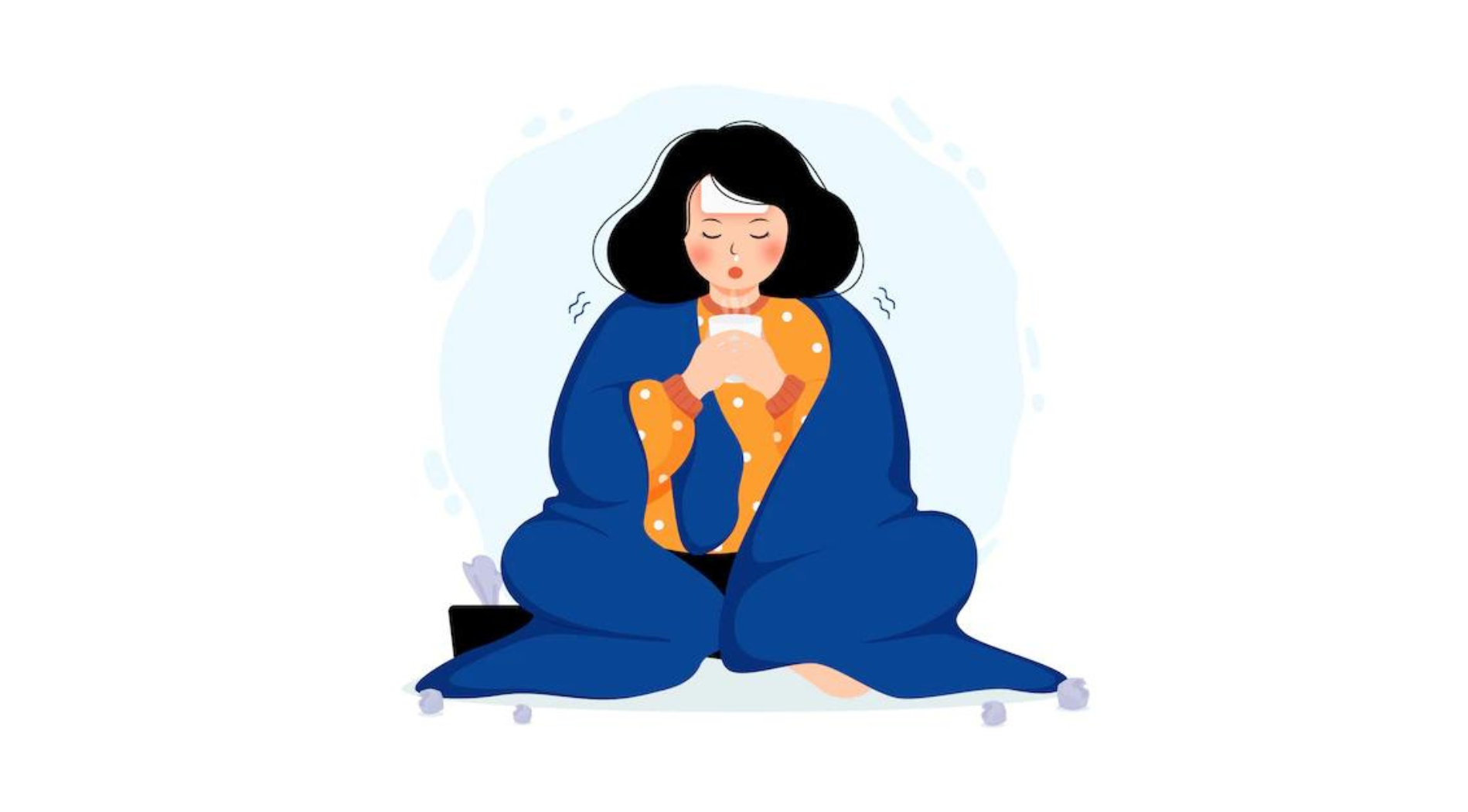Why Are You Always Cold? 7 Reasons Why You Can't Stop Shivering
Constantly feeling cold is not only unpleasant, but it may indicate an underlying health issue such as hypothyroidism, vitamin insufficiency, or simply not getting enough sleep.
Feeling uncomfortable when you’re outside in the cold weather is one thing, but if you’re constantly shivering while everyone else claims to be warm, it’s time to look into it. Here are ten plausible reasons why you’re always cold, and how you might get a handle on your messed-up internal thermostat.
- Low Body Mass Index
Low body weight—defined as a BMI of 18.5 or less—can keep you cold for a few reasons.
Furthermore, a low BMI usually indicates a reduced food intake. Calorie restriction inhibits your metabolism, resulting in insufficient body heat production.
If you feel your chills are caused by being underweight, you may also suffer the following symptoms:
- An irregular menstrual cycle
- Dizziness
- Fatigue
- Weakness
How to handle it: If you are underweight, consult your doctor who will do tests to determine what is causing your low body weight. They may also advise you to gain weight by eating a lot of complete, healthful foods high in protein, fat, and complex carbohydrates.
- Thyroid hypothyroidism
“Always being cold is a clear indicator of hypothyroidism, which implies your thyroid doesn’t secrete enough thyroid hormone,” your metabolism slows, stopping you from producing enough heat.
Other hypothyroidism symptoms include:
- Hair thinning or loss
- Hair and skin that is dry
- Periods that are longer or heavier
- Unknown cause of weight increase
How to handle it: If you suspect you have a thyroid problem, consult with your doctor, who can confirm the diagnosis with a blood test and treat the illness with prescription medications.
- Anemia due to iron deficiency
One of the most common causes of chronic coldness is low iron levels. This is because iron helps red blood cells transport oxygen throughout your body, allowing it to produce heat. Iron is particularly important since a lack of it can inhibit thyroid activity, resulting in hypothyroidism.
Other symptoms of low iron levels, according to the National Heart, Lung, and Blood Institute, include:
- Skin tone is light.
- Nails that are brittle
- Concentration problems
- Breathing difficulty
How to handle it: You should first seek a precise diagnosis from your doctor via a blood test. Depending on the severity of your anemia, they may recommend iron supplements, an IV infusion, or simply increasing your intake of iron-rich foods.
- Dehydration
If you can’t seem to become warm, it could be an indication that you need to drink more water. Water makes up much to 60% of the adult human body, and it helps maintain body temperature. If you stay hydrated, water will trap heat and gently release it, keeping your body temperature in a reasonable range. Your body is more vulnerable to severe temperatures when it has less water.
Other indicators of dehydration besides feeling cold include:
- Confusion or lightheadedness
- Cramps in the muscles
- Constipation
- Dark urine
How to treat it: Aim for at least eight glasses of water each day, but drink more if you’re working out or spending time in the sun.
- Vitamin B12 deficiency
Anemia, which results from a lack of vitamin B12 (approximately 2.4 micrograms per day for a normal adult), can be caused by a lack of vitamin B12.
In addition to continuous chills, you may have a B12 deficiency if you have the following symptoms:
- Hand, leg, or foot numbness or tingling
- The tongue is swollen and irritated.
- Problems with balance
- Memory lapses
While B12 deficiency is uncommon in the general population, it is common among vegans or vegetarians because the substance is almost entirely contained in animal sources. If you eat a plant-based diet, consider taking a supplement. Otherwise, consult your doctor, since this could be a sign of an absorption problem.
- Diabetes Type 8
Diabetes that is not controlled can cause peripheral neuropathy, which destroys the nerves in your hands and feet.
When this happens, you get numbness and occasionally pain in your hands and feet. Because these nerves are also in charge of transmitting instructions to your brain about temperature sensitivity, your hands and feet may feel chilly.
How to treat it: Diabetic nephropathy develops gradually, so you may be unaware that you have it. However, if you have diabetes or are experiencing symptoms such as frequent urination, exhaustion, or thirst, consult your doctor.
- Lack of sleep
Not getting enough sleep causes havoc on your neural system, which can throw your temperature regulating systems out of whack.
While it’s unclear why, not getting enough shut-eye diminishes activity in the hypothalamus, the portion of your brain that regulates body temperature. Furthermore, when you’re tired following a sleepless night, your metabolism slows down.
How to treat it: Get the recommended seven to nine hours of sleep per night, stick to a regular sleep pattern, and turn off devices about 30 minutes before you go to bed.
Disclaimer: This article is provided for information purposes only and should not be used to diagnose or treat medical conditions. Consult a doctor or other health care professional for medical diagnosis and treatment.


